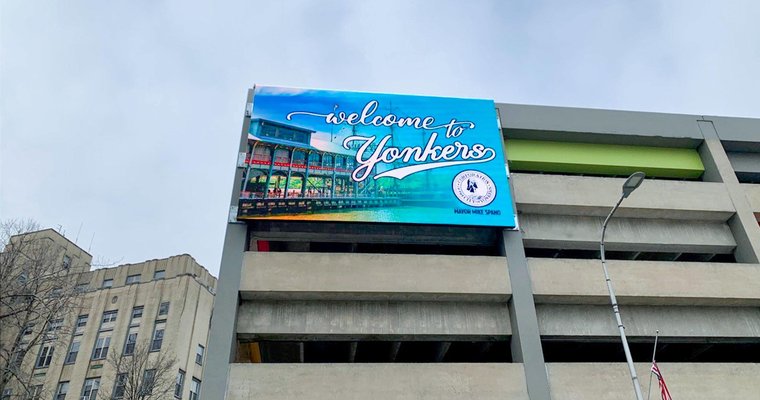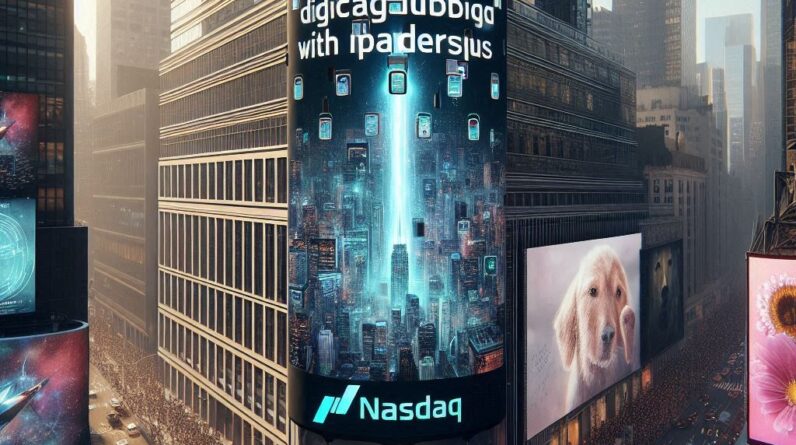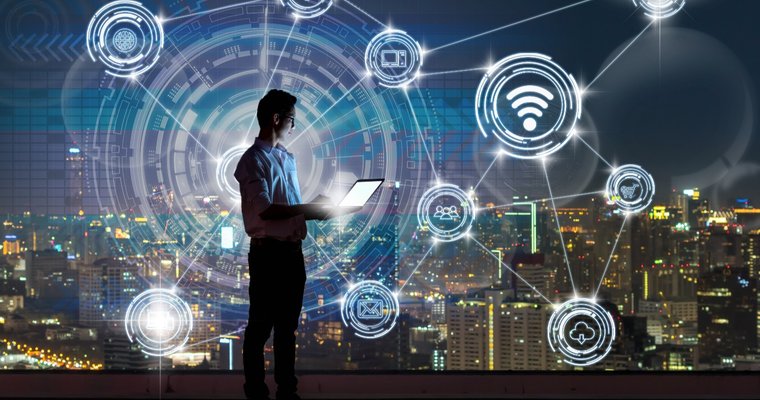
[ad_1]
Johannes Peeters, co-founder and CEO at Voxel Sensors, joined Daniel Brown, editor at Networld Media Group, via video link from Brussels, Belgium, to discuss the promise and perils of augmented reality and the metaverse in the consumer and production environments, along with strategies to get there.
Johannes Peeters, co-founder and CEO at Voxel Sensors, joined Daniel Brown, editor at Networld Media Group, via video link from Brussels, Belgium, to discuss the promise and perils of augmented reality and the metaverse in the consumer and production environments, along with strategies to get there. Peeters is a technologist, inventor and amateur race car driver who joined us to talk about the unique approach his firm VoxelSensors is taking to spatial computing, bringing a low-latency, low-power consumption capacity thanks to proprietary sensors and software in their Pixel Switching solution.
Video Overview
A spatial computing solutions firm founded in 2020, VoxelSensors announced in May that it received €5 million (about $5,418,000) in seed funding to develop 3D perception technologies, with participating investors including Belgian venture capital firms Capricorn Partners and Qbic. Last December, the firm entered a partnership with OQmented, an AR/VR display and 3D sensing firm with a focus on MEMS-based solutions.
In the wake of the Apple Vision Pro announcement, VR has received fresh attention from the public, and Peeters explains how his solution fits into the augmented reality/metaverse world, including the engineering and science, with applications ranging from various automation, robotics and manufacturing categories (including AMRs and mixed reality workspaces) to consumer electronics.
From AMRs and autonomous drones in manufacturing, assembly and warehouse settings (including autonomous forklifts) to cobots, which are typically padded and/or programmed to move very slowly for safety, having low-latency point-cloud generation is designed to optimize safety alongside speed and efficiency — robots can move faster and more safely the better their sensors are at mapping changing surroundings.
As a technologist, Peeters added that he foresees a future where there is still a difference between the physical and the digital portion of our lives; while some industry voices promote the notion that the metaverse will mean that humans are living 24/7 in a “phygital” world, in which digital elements undergird every minute of our waking experience, Peeters thinks that there will be certain applications where consumers and workers will use AR glasses for specific tasks, removing them for regular daily activities. Even in that scenario, however, ongoing obstacles for wearables include battery capacity and size/weight.
On a personal level, Peeters also shared some of his own story and the nuts and bolts of founding companies as a serial entrepreneur, explaining the personal drive and joy he feels when he sees solutions he helped build being used on the market, such as when he shared an Uber with the team during a conference and the BMW they rode in used a gesture command solution he had helped create at a previous company (circa 2012-2015).
Another exciting area of spatial computing technology involves accessibility and DEI, including mixed reality tech used at the MSP airport or Peeters’ example of the AYES solution, which aims to provide autonomous navigation services for the visually impaired.
While Peeters is generally optimistic about the pace of technological evolution, he also cautions against excess in the augmented reality world, warning that we should be careful to avoid a dystopian world in which humans no longer have experiences outside of the digital world. Peeters pointed to his shirt, which bore the logo of the Classic Racing School in France, speaking of his passion for the analog experience of amateur racecar driving as an example of how physical experiences are also important, even as the metaverse grows.
“This physical world, which I love, and this digital world, which I also love — I’m not a believer in, ‘Oh, well, we’ll all be transferred into a digital world and live in another reality,'” Peeters said. “But there will be moments which will bring us together, where we will be really enjoying things in a digital experience with people from all around the world… and when we put it away, we’ll go back into our physical world where there’s also amazing experiences to have.
“And that’s, I think, why the term metaverse has received or is receiving now these bad connotations, because it’s like, everybody’s going to be in this dystopian digital world and the physical world’s going to go away — that, I don’t believe in. But I strongly believe that we’re going to have amazing experiences when we blend those two worlds.”
Video credit: Daniel Brown, Networld Media Group
Related:
VoxelSensors receives seed funding for 3D perception, XR tech | Digital Signage Today
VoxelSensors receives seed funding for 3D perception, XR tech | Digital Signage Today
Minneapolis-St. Paul airport’s digital transformation highlights signage, customer experience | Digital Signage Today
Daniel Brown is the editor of Digital Signage Today. He is an accomplished technology writer whose experience includes creating knowledge base content for a major university’s computing services department. His previous experience also includes IT project management, technical support and education. He can usually be found in a coffee shop near a large pile of books.
[ad_2]
Source link






